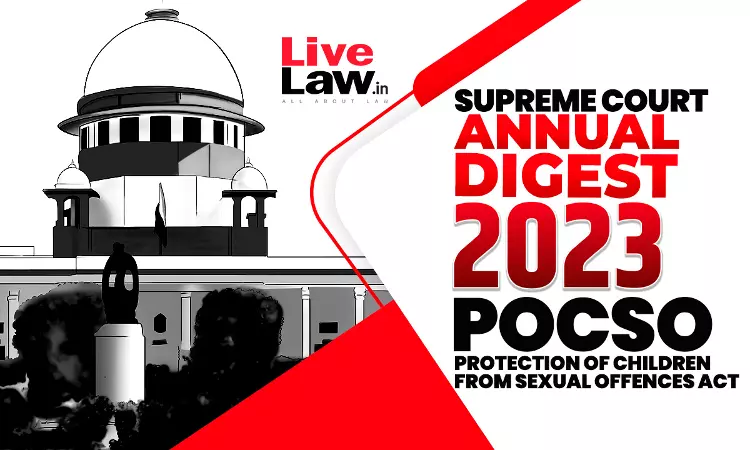Supreme Court Annual Digests 2023- Protection of Children from Sexual Offences (POCSO) Act
LIVELAW NEWS NETWORK
27 Jan 2024 10:26 AM IST

Next Story
27 Jan 2024 10:26 AM IST
Protection of Children from Sexual Offences Act, 2012 - Juvenile Justice (Care and Protection of Children) Act, 2015; Section 3 - A support person – whether involved from the early stages of lodging a report or brought on board shortly thereafter - can play a tremendous role in offering encouragement, reassurance, and guidance, merely from their knowledge of the legalese, armed with...
